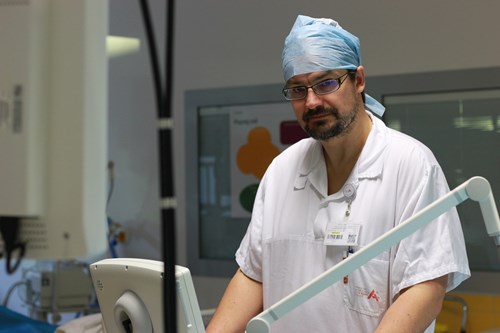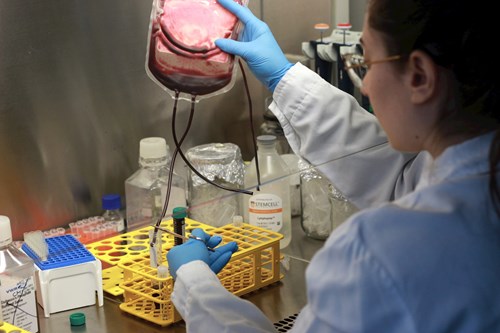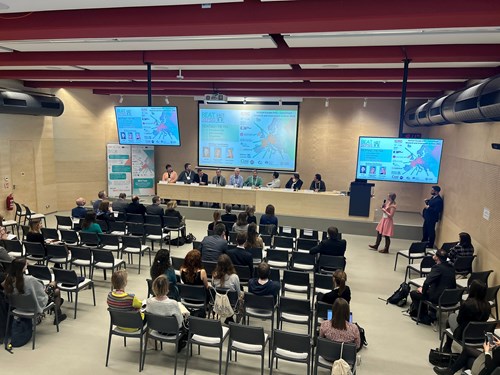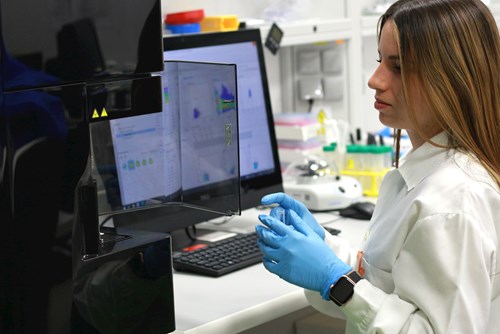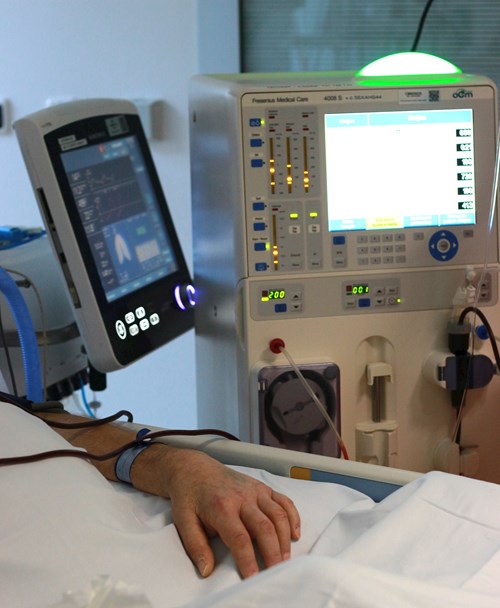Sepsis, known in layman's terms as blood poisoning, is a life-threatening condition. Our immune system overreacts to the infection and damage to our own tissues and organs occurs. Sepsis can have long-term health consequences that significantly reduce quality of life.
"He didn't die of pneumonia. He died of sepsis."
Sepsis affects up to 50 million people a year, accounting for a fifth of the world's deaths. How is this possible when heart disease or cancer dominates the sad list? Sepsis most often affects patients when they are debilitated in some way. Patients after major surgery or trauma are at risk. Sepsis can also develop as a result of complicated diseases, such as pneumonia, meningitis or urinary tract infections. In many cases, the real cause of death is not the disease itself, but the complication of sepsis that has developed as a result of the disease.
180 million CZK grant and tailor-made care
The incidence of sepsis is increasing every year, for example, due to an ageing population and increasing resistance of bacteria to antibiotics. In developed countries, sepsis mortality is declining, but survivors face sequelae of varying forms and severity. Brno researchers want to improve their lives in particular within the BEATsep project.
"We want to portray in detail the condition of a patient with sepsis, to better understand the changes that persist in the body in the long term and to look for combinations of suitable biomarkers that will allow us to predict how the patient's condition will develop further and thus better tailor treatment," says Jan Frič, head of the research team. "Our main goal is to improve the care of patients who survive sepsis but suffer various serious consequences as a result, which complicate their lives."
The HORIZON Europe grant for 6.9 million Euros, i.e. 180 million czech crowns, was awarded to Dr. Jan Frič's Cellular and Molecular Immunoregulation team last autumn. "It is all the more successful because our International Clinical Research Centre (ICRC) initiated the whole project. It took two years of intensive work to put together the consortium that will address the issue over the next five years. Eleven partners from six European countries are involved in the project, including a hospital in Marseille and a trauma institute in Vienna," adds Frič.
We are all at risk from sepsis
People over 60 or children under 5 are most at risk of sepsis. In older people, immunity does not work as efficiently as in young people, while in young children it is not fully developed. Other important risk factors include the simultaneous occurrence of multiple diseases or chronic diseases. This may lead to the idea that sepsis does not affect the majority of the population. The opposite is true; any infection can lead to sepsis. "It is essential to recognise the symptoms of sepsis early on", points out Martin Helán, who not only works on sepsis within the BEATsep project, but also frequently encounters sepsis and septic shock as a doctor at the anaesthesiology and resuscitation department of St. Anne's University Hospital in Brno. "If there is a delay in the treatment of a serious infection, there is a risk of rapid progression of sepsis, development of shock, and the patient can very quickly be in life-threatening condition. At present, we cannot predict which patient will develop sepsis and which will not. The treatment of sepsis rests on two pillars - the infection itself must be treated (by administering antibiotics and removing the source of infection, e.g. surgically) and the failing organs must be supported, for example by artificial pulmonary ventilation, circulatory support or replacement of kidney function," he explains.
The aftermath of sepsis? From chronic pain to depression
Although 80 to 85% of people in developed countries survive sepsis, a large proportion of them suffer from post-sepsis syndrome (PSS), which has a variety of manifestations. These range from neurological difficulties such as sleep disturbances, impaired concentration or mental capacity, to chronic fatigue or chronic pain, metabolic problems and poor nutrient absorption, to immune disorders.
"And this can complicate the recovery of these patients," says one of the coordinators of the BEATsep project, researcher Marcela Hortová-Kohoutková, who is also leading a research work package assessing the burden of sepsis. "Patients can also suffer from long-term weakening of the immune system, making them much more susceptible to further infections. As a result of sepsis, they may even suffer from depression, but generally speaking the range of difficulties is very diverse. The BEATsep project is indeed a huge milestone. Doctors caring for these patients will, through BEATsep, have a simple tool that will provide answers that will ultimately improve the care of patients who have had sepsis," he adds.
The International Clinical Research Centre is a joint workplace of the St. Anne's University Hospital in Brno and the Faculty of Medicine of Masaryk University.
Tisková zpráva ke stažení


